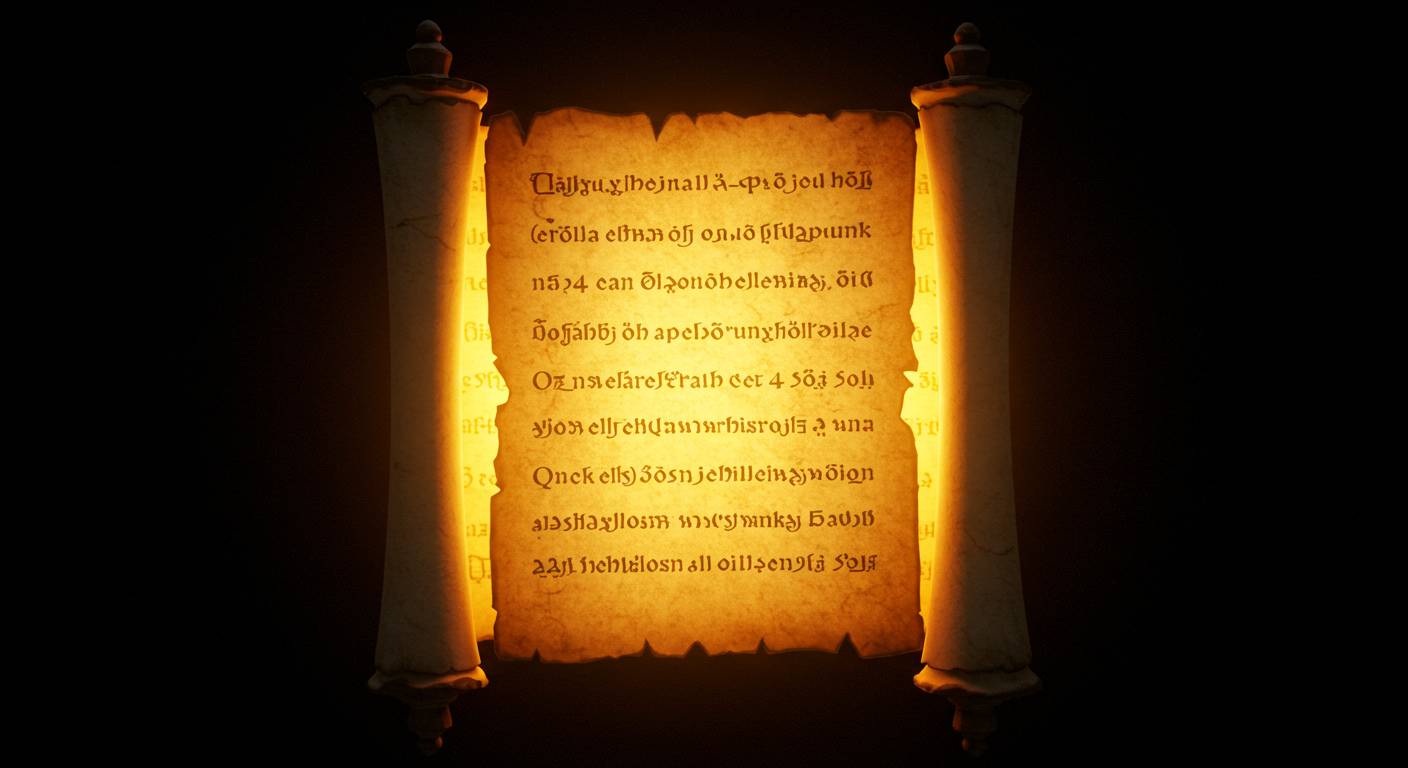Explore Revelation 1:18’s symbols and insights on mortality. Discover Christ’s authority over life and death, offering hope and perspective for modern believers.
The Keys Of Death And Hades: Authority Over Life’s Finality — Revelation 1:18
Introduction: Setting the Scene
In the rich tapestry of Revelation 1:18 stands out with profound simplicity, stating, “I am the Living One; I was dead, and now look, I am alive forever and ever! And I hold the keys of death and Hades.” This line is not just a part of John’s apocalyptic vision but an unveiling of Christ’s ultimate authority over life and death. Through this vision, we are offered a linchpin of hope and conquest over what is often deemed as the final frontier — death itself.
Many have experienced moments of pondering mortality, wrestling with the temporary nature of life. In this apocalyptic vision, there is a reassurance about the temporary grasp of death and an eternal life that beckons beyond. Revelation 1:18 becomes a beacon for those navigating through the shadows of doubt, offering a torchlit path toward understanding eternity.
Why It Matters
As you dwell on this powerful vision, it becomes evident how deeply it resonates not just within the book of Revelation but throughout the Christian faith. The declaration that Christ holds the keys signifies not only His dominion but also His nurturing governance over every aspect of existence. For believers, this is more than comforting; it is life-affirming. It assures you that in the grand timeline of existence, Christ stands as a figure of supreme control, guiding destinies beyond earthly limitations.
The essence of Revelation comes alive in the intersection of divine revelation and human existence, providing a glimpse into the ultimate reconciliation of life and death. The message transcends the confines of temporal life, promising believers a share in eternal life. This crucial aspect renders this vision both a touchstone of faith and a source of profound peace.
Exploring the Vision in Depth
Summary of Key Symbols
Within John’s Revelation, symbolism weaves through visions like a thread through a tapestry, enhancing the depth of the message conveyed. Revelation 1:18 presents not just a text but also a profound symbolic statement. Here, the “keys of death and Hades” become emblematic of authority and control over mortality. Keys themselves often represent access or permission; thus, these keys symbolize authority over life and death.
The concept of Hades, deeply rooted in ancient understandings of the afterlife, broadens this vision’s context. Hades exchange its grim captor role for a realm under Christ’s authority. These symbols collectively paint a picture of Christ as the sovereign ruler, intervening in the storied history of death itself.

Contextual Background
To truly appreciate the potency of this vision, one must delve into its historical and theological backdrop. Revelation was penned during a time of tumult for early Christians, faced with persecution and uncertainty. In this context, the vision of Christ with the keys of death and Hades served as a powerful anchor.
Theologically, it also resonates with earlier scriptures, such as Christ’s resurrection, which fundamentally subverts the permanence of death. This resonates with the fundamental claims of the Christian faith — Christ’s triumph over death, offering a tangible embodiment of hope. The ancient settings of these narratives lend credibility to their transformative power, bridging millennia to speak to us today.
Interpretation
The unifying message through Revelation 1:18 is clear: death is not final. Here, Christ’s triumphant declaration is one of hope, a beacon in the existential darkness. Instead of perceiving death as an inescapable end, it transforms into a passageway under the careful watch of Christ, who assures life beyond.
The keys symbolize not just permission, but stewardship, indicating that those who follow Christ are under His eternal care. Christ’s assurance of having been dead and now alive signifies both His immortality and His power to grant eternal life. Through this lens, the passage showcases the apocalypse not as an end but as a transition into everlasting life with God.
Relevance for Today’s Readers
Spiritual Insight
Reflecting on the vision of Revelation 1:18, it sparkles with profound spiritual insights for today’s believers. In a world often overshadowed by despair and fear, this passage inspires bravery, reminding you that life transcends the body. It invites a reassurance that, despite all struggles, life’s ultimate journey is towards an eternal reunion with the Divine.
This becomes even more significant in navigating contemporary challenges, where fear of death or uncertainty about the future looms large. As you meditate on this verse, let it encourage your spirit, strengthen your resolve, and refocus your vision on the promise of eternal life.
Application in Daily Life
The nuggets of wisdom from Revelation 1:18 apply across the spectrum of daily encounters. It urges you to live a life of faith and purpose, anchored not in fear of life’s finality but in the assurance of life’s continuation. The keys symbolize liberation — a call to break free from despair and embrace a hopeful perspective on life and death.
In everyday moments, from significant decisions to seemingly mundane experiences, this revelation prompts you to approach each day with the knowledge that Christ holds the beginning and the end. This realization brings freedom to live authentically, courageously, and faithfully.
Supporting Verses and Cross-References
This message of Revelation 1:18 is not isolated; it echoes across various other biblical passages, each lending greater understanding and context. Ephesians 2:6-7 provides a parallel, illustrating God’s grace and the promise of spiritual resurrection: “And God raised us with Christ and seated us with him in the heavenly realms in Christ Jesus.”
Philippians 3:20-21 further strengthens this connection by pointing out our heavenly citizenship and the transformation that awaits us through Christ’s power. Reflecting on these verses together enriches your comprehension and draws a tapestry of promise and hope that is evident throughout scripture.
Conclusion: Reflection on the Vision’s Message
As you reflect on this vision of Revelation 1:18, the overarching message is one of profound hope and assurance. It reiterates Christ’s power over every existential fear, including death itself. The keys presented in this narrative are not just symbolic but a testament to Christ’s enduring authority and love.
In contemplating this vision, internalize its invitation to live with courage and assurance. It is not merely an echo of theological musings but a clarion call to rise above earthly concerns and align with the eternal promise of life that Christ offers.
As you ponder, pray, and integrate these truths into your life, you are encouraged to view the trials of today within the grand landscape of eternity. This vision reminds you that every challenge is but a temporary bridge to eternal triumph.
May you draw strength from this message, inspired by the promise of life beyond life, and allow it to transform your outlook and faith journey. Remember to share your thoughts, continue exploring scripture, and subscribe to receive insights that can enrich your spiritual walk.







